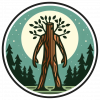*Three sessions* - July 12, July 14, July 19 (each 11am-12:30pm EDT)
More info/details on the webpage.
OVERVIEW
Aquatic vegetation (AV) provides a habitat for numerous small invertebrate and fish species. Kelp forests, for example, are the dominant coastal ecosystem in temperate waters. The presence of AV in coastal waters is a normal occurrence, as it is an important component of the natural marine environment. Nevertheless, in the last decades, the appearance of increasingly abundant mats of certain floating species in other coastlines (i.e., Caribbean/Atlantic) has become a nuisance to local economies.
Sargassum mats, for example, are reaching coastal areas by tons every year and there is still not a clear hypothesis as to why this is happening. While these mats provide an important habitat for small invertebrate and fish species, they also affect the amount of light reaching shallow-water ecosystems like coral reefs and seagrass beds. Several NASA-funded efforts are currently using remote sensing techniques to monitor the presence of Sargassum in Caribbean and Atlantic waters, while others have a citizen science-oriented approach to follow giant kelp populations in the Pacific.
This training will combine basic information on the remote sensing of AVs, spectrometry of aquatic/coastal vegetation, and a demonstration of the NASA-funded Floating Forests citizen science tool.
OBJECTIVE
By the end of this training attendees will be able to:
- Distinguish some types of submerged and floating aquatic flora
- Summarize the major features of AV spectral signatures
- Recognize the primary satellite sensors used for studying AV
- Become familiarized with a citizen science (Floating Forests) tool for classifying kelp forests in the west coast of the United States
- Discover remotely-sensed and in situ tools to study the presence of seaweed in the Atlantic/Caribbean including the Sargassum Watch System (SaWS)
AUDIENCE
This webinar series is intended for local, regional, state, federal, and non-governmental organizations involved in land and coastal ecosystems management. Applied scientists and GIS professionals interested in learning how to assess the presence of aquatic vegetation independently.
COURSE FORMAT
- Three, 1.5 hour sessions (1 hr + 0.5 hrs Q&A)
SESSIONS
Part 1: July 12, 2022
11:00 am ~ 12:30 pm
EDT (UTC-4:00)
Trainers: Juan L. Torres-Pérez (Lead), Amber McCullum
- Background of coastal/marine submerged and floating aquatic vegetation species from temperate and tropical waters (seagrasses, kelps, Sargassum)
- Overview of primary satellites/sensors used to study aquatic vegetation remotely
- Spectral signatures of plants and algae
- Remote sensing of seagrass meadows
- Q&A
Part 2: July 14, 2022
11:00 am ~ 12:30 pm
EDT (UTC-4:00)
Trainers: Juan L. Torres-Pérez (Lead), Amber McCullum
- The kelp forest: ecology and importance
- Remote sensing of the kelp forest
- Floating Forests: a citizen science tool for mapping the extent of kelp forests in the west coast of the US
- Q&A
Part 3: July 19, 2022
11:00 am ~ 12:30 pm
EDT (UTC-4:00)
Trainers: Juan L. Torres-Pérez (Lead), Amber McCullum, Roy Armstrong (UPR-Mayaguez), William Hernández (UPR-Mayaguez)
- The Caribbean/Atlantic Sargassum patch
- Remote sensing and in situ sampling for mapping the extent and prevalence of the Sargassum patch in Puerto Rico
- The Sargassum Watch System (SaWS)
- Q&A
PREREQUISITES





Add the first post in this thread.